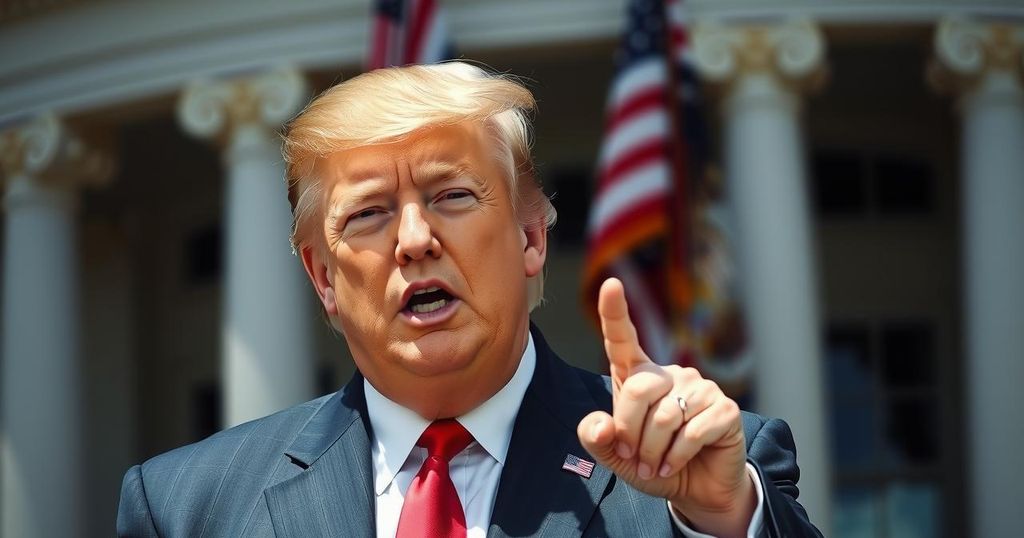Trump’s Shift to Imperialism: A New Foreign Policy Strategy

Following his electoral victory, President-elect Donald Trump has embraced an imperialist agenda, suggesting military claims over the Panama Canal and Greenland while proposing that Canada could become the U.S.’s 51st state. This rhetoric is alarming to analysts who fear it may embolden adversaries and undermine established norms of territorial integrity. Trump’s provocative statements have elicited strong reactions from Canada and other allies, highlighting the risks of his approach in a critical moment for American foreign policy.
In a striking shift from his previous “America First” foreign policy ethos, President-elect Donald Trump appears to be adopting a more imperialistic stance following his recent electoral victory. Previously advocating for reduced U.S. engagement abroad and the avoidance of new military conflicts, he has now made alarming statements suggesting American military intervention regarding the Panama Canal and Greenland. Trump has articulated a vision for the United States where Canada potentially becomes the 51st state, proposing to eliminate the existing border between the two nations.
Such rhetoric, which undermines recognized international borders and employs military coercion, stands in stark contrast to established norms supporting territorial integrity. Analysts caution that this approach could embolden adversaries, such as Russia and China, particularly amid their aggressive territorial ambitions. Furthermore, John’s Bolton’s critique underscores that Trump’s expansive language might resonate positively with hostile leaders like Vladimir Putin and Xi Jinping, indicating an unnerving shift in American foreign policy mentality that could destabilize international relations.
Increasingly, observers note that Trump appears more confident and less constrained now than during his first term, contributing to escalating tensions with Canada and other allied nations. Prominent figures such as Gerald Butts, a former senior advisor to the Canadian Prime Minister, have drawn a stark contrast between Trump’s initial unpredictability and his current assertive posturing, emphasizing the potential risks inherent in his approach.
Allies like Canada and Denmark have expressed outrage regarding Trump’s comments, reinforcing the sentiment that such imperialistic ambitions are unwelcome. Critics argue that the U.S. is better served through collaborative relationships rather than assertions of coercion or claims over territorial sovereignty. The response from Mexican officials further reflects a regional consciousness regarding Trump’s proposals, noting that such discussions merely sow confusion rather than foster constructive dialogue.
The article discusses President-elect Donald Trump’s evolving foreign policy posture, marking a departure from his previous “America First” stance characterized by isolationism and a reluctance to engage military forces abroad. This shift includes assertive statements regarding potential U.S. claims over strategically significant territories such as the Panama Canal and Greenland. It reflects a growing trend in Trump’s rhetoric that aligns more closely with imperialistic views not seen in American politics for several decades, which raises concerns among international allies and security experts alike.
In conclusion, President-elect Donald Trump’s recent shift towards an imperialist approach represents a significant deviation from his prior commitment to an “America First” foreign policy. His statements, suggesting military intervention and territorial claims, have ignited concern among international allies, risking destabilization of longstanding cooperation and alliances. As critics emphasize the importance of diplomacy and unity against common threats, Trump’s new confrontational posture may have far-reaching implications for U.S. foreign relations.
Original Source: apnews.com








